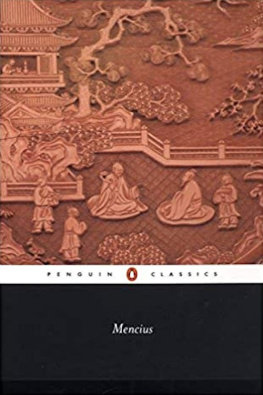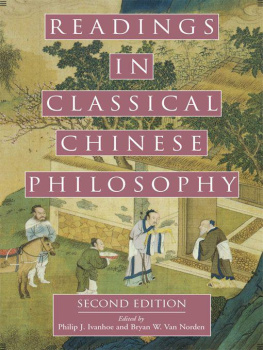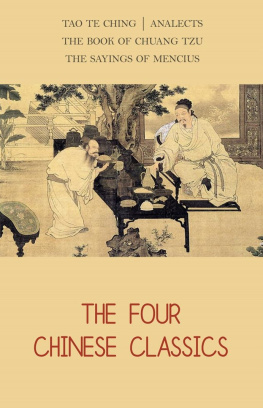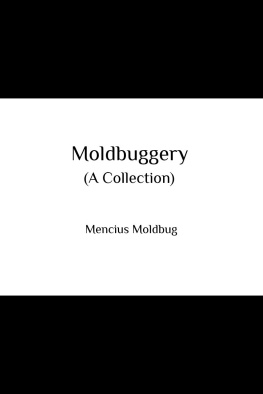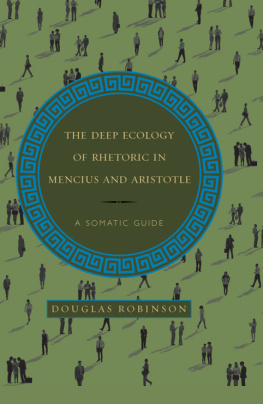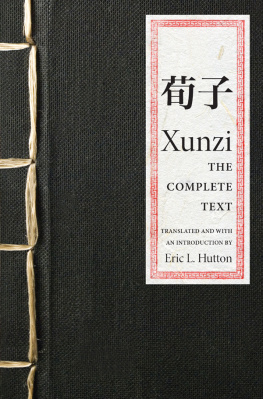Mencius - Mencius
Here you can read online Mencius - Mencius full text of the book (entire story) in english for free. Download pdf and epub, get meaning, cover and reviews about this ebook. year: 2004, publisher: Penguin UK, genre: Science. Description of the work, (preface) as well as reviews are available. Best literature library LitArk.com created for fans of good reading and offers a wide selection of genres:
Romance novel
Science fiction
Adventure
Detective
Science
History
Home and family
Prose
Art
Politics
Computer
Non-fiction
Religion
Business
Children
Humor
Choose a favorite category and find really read worthwhile books. Enjoy immersion in the world of imagination, feel the emotions of the characters or learn something new for yourself, make an fascinating discovery.
Mencius: summary, description and annotation
We offer to read an annotation, description, summary or preface (depends on what the author of the book "Mencius" wrote himself). If you haven't found the necessary information about the book — write in the comments, we will try to find it.
Mencius — read online for free the complete book (whole text) full work
Below is the text of the book, divided by pages. System saving the place of the last page read, allows you to conveniently read the book "Mencius" online for free, without having to search again every time where you left off. Put a bookmark, and you can go to the page where you finished reading at any time.
Font size:
Interval:
Bookmark:

MENCIUS
ADVISORY EDITOR: BETTY RADICE
Little is known about MENCIUS other than what can be gathered from the book named after him. He was, perhaps, born a century or so after the death of Confucius, and it is likely that he died before the end of the fourth century BC. In his old age Mencius travelled from one state to another, hoping vainly to convert the feudal princes of the day to his view of man and morality. For a thousand years the Mencius, as part of the Four Books, was read by every schoolboy. There is no doubt that the influence exerted by Mencius over the development of Confucian thought is second only to Confucius.
D. C. LAU read Chinese at the University of Hong Kong and in 1946 he went to Glasgow where he read philosophy. In 1950 he joined the School of Oriental and African Studies in London to teach Chinese philosophy. He was appointed in 1965 to the then newly created Readership in Chinese Philosophy and in 1970 became Professor of Chinese at the University of London. In 1978 he returned to Hong Kong to take up the Chair of Chinese Language and Literature at the Chinese University of Hong Kong. In 1989, upon his retirement, he was appointed Professor Emeritus and started the monumental task of computerizing the entire body of extant ancient Chinese works. A series of some sixty concordances is scheduled to be completed by 2005.
Translated with an Introduction and Notes by
D. C. LAU
REVISED EDITION
PENGUIN BOOKS
PENGUIN BOOKS
Published by the Penguin Group
Penguin Books Ltd, 80 Strand, London WC2R 0RL, England
Penguin Group (USA), Inc., 375 Hudson Street, New York, New York 10014, USA
Penguin Books Australia Ltd, 250 Camberwell Road, Camberwell, Victoria 3124, Australia
Penguin Books Canada Ltd, 10 Alcorn Avenue, Toronto, Ontario, Canada M4V 3B2
Penguin Books India (P) Ltd, 11 Community Centre, Panchsheel Park, New Delhi 110017, India
Penguin Group (NZ), cnr Airborne and Rosedale Roads, Albany, Auckland 1310, New Zealand
Penguin Books (South Africa) (Pty) Ltd, 24 Sturdee Avenue, Rosebank 2196, South Africa
Penguin Books Ltd, Registered Offices: 80 Strand, London WC2R 0RL, England
www.penguin.com
This translation first published in Penguin Classics 1970
Revised edition first published by the Chinese University Press 2003
Published in Penguin Classics 2004
6
Copyright D. C. Lau, 1970, 2003
All rights reserved
Except in the United States of America, this book is sold subject to the condition that it shall not, by way of trade or otherwise, be lent, re-sold, hired out, or otherwise circulated without the publishers prior consent in any form of binding or cover other than that in which it is published and without a similar condition including this condition being imposed on the subsequent purchaser
EISBN: 9781101489543
Only two Chinese philosophers have the distinction of being known consistently to the West by a latinized name. The first is Confucius. The second is Mencius, whose name is Meng Ke. That Mencius should share the distinction is by no means an insignificant fact, for he is without doubt second only to Confucius in importance in the Confucian tradition, a fact officially recognized in China for over a thousand years. There are various reasons for this. First, the Analects of Confucius which forms almost the only reliable source of our knowledge of the thought of Confucius consists of a collection of sayings of the sage, mostly brief and often with little or no context. Hence many ideas are not elaborated upon, leaving a good deal of room for differences in interpretation. The Mencius, too, consists of sayings of Mencius and conversations he had with his contemporaries, but these tend to be of greater length and there is often some kind of a context. The ideas are, therefore, more articulate. Thus the Mencius, when read side by side with the Analects of Confucius, throws a great deal of light on the latter work. Second, Mencius developed some of the ideas of Confucius and at the same time discussed problems not touched on by Confucius. It is not an exaggeration to say that what is called Confucianism in subsequent times contains as much of the thought of Mencius as of Confucius.
The only other great name in early Confucianism is that of Hsn Tzu who was half a century or so later than Mencius. He developed Confucianism in a way radically different from that of Mencius, and we shall have occasion to mention him when we come to discuss the philosophical thought of Mencius. It is he looked to Mencius as much for his superb style as for his sound philosophy. Second, from the Sung onwards, the philosophy of Mencius became the orthodoxy while Hsn Tzu was almost totally eclipsed. The Great Learning, the Doctrine of the Mean, the Analects of Confucius, together with the Mencius, became known as the Four Books which, until the present century, were read and memorized by every schoolboy in his first years at school. Thus the position and influence of Mencius were assured.
As with most ancient Chinese thinkers, little is known of the life of Mencius other than what we can glean from the work bearing his name. True, there is a biography It is difficult to say how much credence can be given to these traditions, but they attained wide currency and great popularity as cautionary tales.
It is to the Mencius, therefore, that we must look if we wish to find out something about Mencius life. The Mencius is divided into seven books, the titles of which are of no significance as they are all simply taken from the opening sentence of the books and, with the exception of the last book, are all names of persons with whom Mencius had conversations. There is no indication that any method for the grouping of the sections was followed by the editor, though Book V Part A, for instance, consists solely of questions and answers concerning history. There is, however, one exception, and that is Book I. There the sections are arranged chronologically, and it is this book that furnishes us with some precise dates. In I. A. 5, King Hui of Liang mentions his defeats by Chi to the east, by Chin to the west, and by Chu to the south. The defeat by Chi was at Ma Ling in 341 BC. From that year onwards, for the next twenty years, Liang suffered a series of defeats at the hands of Chin. The humiliation inflicted by Chu was in 323 BC. As King Hui died in 319 BC, the meeting with Mencius must have fallen within the period 323 to 319 BC. With the death of King Hui, King Hsiang succeeded him and 1. A. 6 records an interview with the new king. Mencius must have left Liang for Chi soon afterwards, finding King Hsiang lacking in the dignity befitting a king. In the next section we find a conversation with King Hsan of Chi who had just succeeded his father, King Wei, in 320. The sections, from 1. A. 7 to 1. B. 11, are concerned with King Hsan, and 1. B. 10 and 1. B. 11 both deal with the invasion of Yen by Chi in 314 BC. This same event is also dealt with in 11. B. 8 and 11. B. 9, and this part of Book II seems also to be in chronological order. In 11. B. 14 we find Mencius explaining to a questioner that after his first meeting with the king he had no intention of staying in Chi, but it so happened that war broke out and I had no opportunity of requesting permission to leave. This almost certainly refers to the war with Yen, and Mencius must have left shortly after hostilities came to an end. To return to Book I, the remaining chapters of the book record conversations with Duke Mu of Tsou, Duke Wen of Teng and finally with Duke Ping of Lu. It seems likely that after he left Chi Mencius stopped in Tsou and Teng on his way to Lu. We know nothing of Mencius after this. He probably lived out his last years in retirement in Lu.
Font size:
Interval:
Bookmark:
Similar books «Mencius»
Look at similar books to Mencius. We have selected literature similar in name and meaning in the hope of providing readers with more options to find new, interesting, not yet read works.
Discussion, reviews of the book Mencius and just readers' own opinions. Leave your comments, write what you think about the work, its meaning or the main characters. Specify what exactly you liked and what you didn't like, and why you think so.

